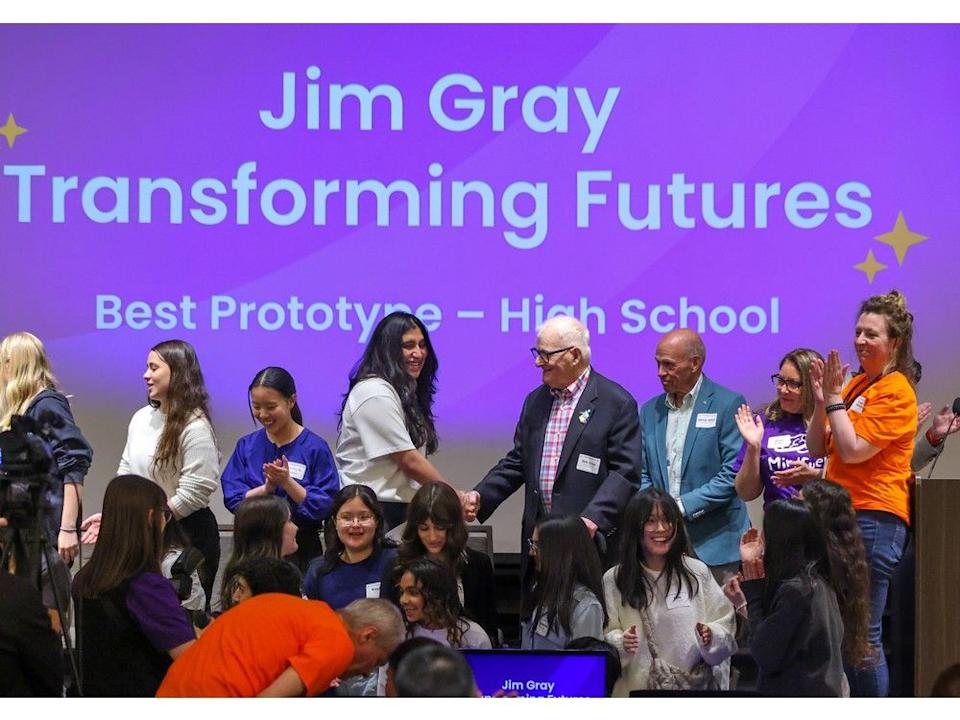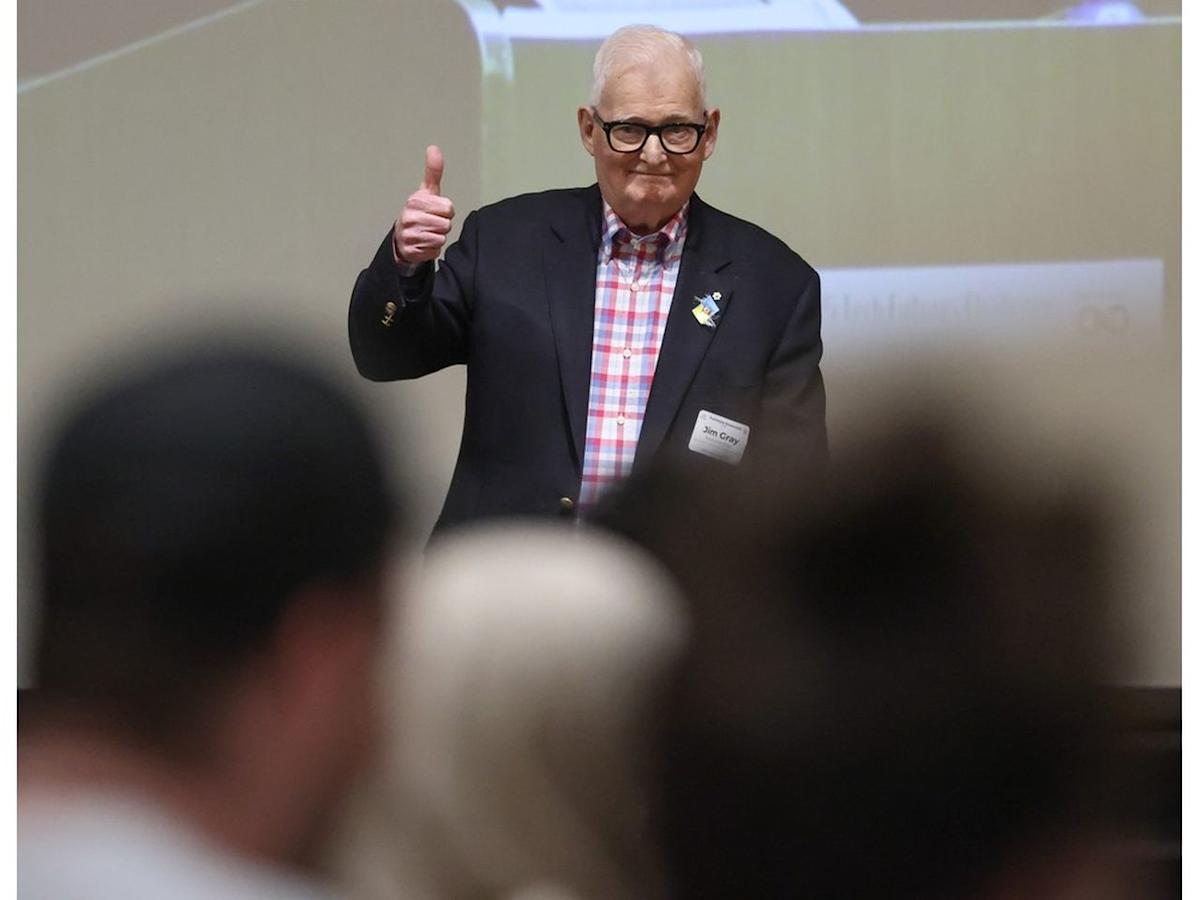Helping mentor thousands of Canadian students in pursuing their passions in science and technology has garnered a prominent city philanthropist their thanks.
On Saturday, former Calgary oilman Jim Gray was presented an award for continually inspiring the organization he founded 35 years ago that would become today’s MindFuel Foundation.
The Calgary-based program encourages high school and post-secondary students to develop their technology and science ideas, many of which have led to scholarships and even valuable commercialized products.
‘Gets things done’
“Jim is a builder — he sees a problem and gets things done,” said Cassy Weber, who’s been the CEO of MindFuel for the past 13 years.
“He’s so amazing and today is an opportunity just to share Jim’s wisdom.”
Gray’s activism has also included lobbying on the development of Calgary’s Green Line LRT and pushing for greater action on protecting Alberta’s Bow Valley from wildfire.
In the 1980s, he founded the Alberta Science Foundation, which would eventually become MindFuel, that’s developed youth interest in science, technology, engineering and math (STEM).
At its core is a six-month immersive effort among students to develop prototype solutions to real-world problems, which were presented Saturday at the University of Calgary to a panel of 20 judges who’d pick winners among high school and post-secondary categories.
It involved 220 students aged 15 to 25 from across the country.


Calgary businessman and philanthropist Jim Gray, centre, shakes hands with the Jim Gray Transforming Futures award-winners for the high school prototype category at the MindFuel Showcase at the U of C on Saturday.
“Thirteen per cent of those projects become commercialized within an average of 4.2 years and it’s unintentional on our part,” said Weber, who’s been involved in several tech startups.
“We get these young people engaged and involved and help them navigate the tech system but these are their wins, their work.”
Over the years, those concepts have attracted $32.5 million in venture capital, she said.
Among those who participate, 45 per cent are able to garner major scholarships with 92 per cent of them being awarded more than one, she added.
One of them that went on to be commercialized was an algae bioreactor that sequesters CO2, an entry from First Nations participants.
For Weber, it’s been an endlessly inspiring journey.
“There’s such an exciting vibe to it, it still feels like fun — it’s never work,” she said.
Careers in innovation
A motivator for MindFuel, said Weber, is a statistic that shows 87 per cent of young people don’t believe a career in innovation is possible. Once they’ve been involved in the program all of those minds are changed, she said.
One of those young people providing inspiration is Aarushi Bhargava who’s competed in MindFuel events four times dating back to her early high school days.
Among her projects was a litter box process that identifies diabetes in cats from their urine, while another one sustainably breaks down polyester through a bacteriological process that’s drawn the interest of Shell Canada.
“That’s definitely one I can see myself coming back to,” said Bhargava, 20, now a second-year chemical engineering student at the U of C.
“But it doesn’t happen without these amazing mentors, it takes a lot of people.”
Her entry in this year’s MindFuel Tech Futures Challenge is an aluminum frame designed to allow toddlers with cerebral palsy to stand upright, a project that’s been developed alongside a four-year-old High River boy.
BKaufmann@postmedia.com
X: @BillKaufmannjrn
